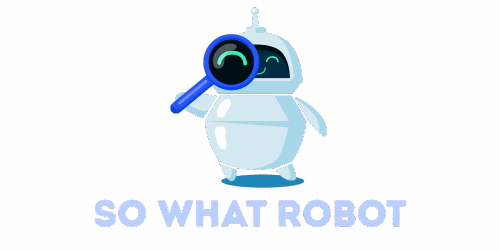Imagine a classroom where every student learns at their own pace, thanks to a virtual tutor tailored just for them. Sounds like something out of a sci-fi movie, right? Well, welcome to the world of AI in EdTech. In today’s tech-driven society, artificial intelligence is not just a buzzword: it’s a game-changer for education. This article aims to explore how AI is reshaping educational landscapes, making learning more personalized and efficient. So, grab your virtual pens and notebooks, because we’re diving deep into the classroom of the future.
Table of Contents
ToggleUnderstanding AI And Its Impact On Education

Artificial intelligence is often seen as an intimidating term reserved for tech giants, yet in the context of education, it represents incredible opportunities. AI in EdTech involves the use of algorithms and software to replicate cognitive functions. By analyzing data, AI can enhance educational experiences, streamline administrative tasks, and improve learning outcomes.
From adaptive learning platforms that modify content to suit individual students’ needs to data analytics that inform educators about their teaching effectiveness, the potential impact of AI on education is enormous. Imagine a world where each student receives instant feedback and guidance tailored to their unique learning journey, fostering both independence and growth.
Benefits Of AI In Educational Settings
AI brings a plethora of advantages to educational settings, transforming traditional approaches to learning. Here are some key benefits:
- Personalized Learning: AI customizes educational experiences, ensuring students engage with materials suited to their learning styles. This personalization can significantly enhance student performance and motivation.
- Efficiency in Grading: Automated grading systems powered by AI can save educators countless hours, allowing them to focus more on teaching rather than assessing.
- Data-Driven Insights: Educators can harness AI to analyze student performance data, identifying areas where students struggle and adapting instructional methods accordingly.
- Scalability: AI can support large numbers of students simultaneously, enabling institutions to expand their offerings without sacrificing quality.
- Accessibility: Tools powered by AI can assist students with disabilities, providing alternative methods for engagement and learning support.
Key Applications Of AI In EdTech
The landscape of EdTech is rich with AI applications that are modernizing how education is delivered. Some notable applications include:
- Intelligent Tutoring Systems: These systems provide real-time feedback and assistance to students, much like a personal tutor, helping them overcome challenges as they arise.
- Chatbots: Often deployed for student support, chatbots can answer questions around the clock, assist with administrative tasks, and even guide users through resources available to them.
- Adaptive Learning Programs: Such programs use AI to adjust learning paths based on individual student needs, enabling custom-tailored learning experiences.
- Learning Analytics: This involves the systematic analysis of data generated by learning processes to generate insights, helping educators refine their approaches to teaching.
Challenges And Considerations For AI Implementation
Implementing AI in educational settings is not without its hurdles. Institutions must navigate several challenges to leverage the full potential of this technology:
- Data Privacy Concerns: With the integration of AI comes the need for robust data protection measures to safeguard student information.
- Equity in Access: Not all students have equal access to technology, raising questions about equity and inclusion in AI-enhanced educational experiences.
- Integration with Existing Systems: Many schools use established systems that may not easily accommodate AI tools. Careful planning and investment in training are necessary to ensure seamless integration.
- Resistance to Change: Educators and institutions may hesitate to adopt AI technologies, fearing it might undermine traditional teaching methodologies or jobs.
- Reliability of AI Tools: While AI can identify patterns, it’s essential to continuously monitor and evaluate these tools to ensure they’re effectively contributing to the learning environment.
The Future Of AI In Education
As we look toward the future, the role of AI in education is set to expand even further. Innovations we can expect include:
- Enhanced Collaboration Tools: AI will likely enable even more dynamic collaboration between students, educators, and parents, promoting a more integrated approach to education.
- Virtual Reality and AI Integration: Imagine students attending a virtual field trip to ancient civilizations while interacting with historical figures, all powered by AI. The possibilities for immersive learning experiences are endless.
- Continuous Learning Models: AI could help lifelong learning pathways, catering to individuals of all ages as they pursue knowledge and skills throughout their lives.
- More Inclusive Education: Future advancements in AI will likely further enhance accessibility, ensuring that all students, regardless of their backgrounds or challenges, can thrive.








